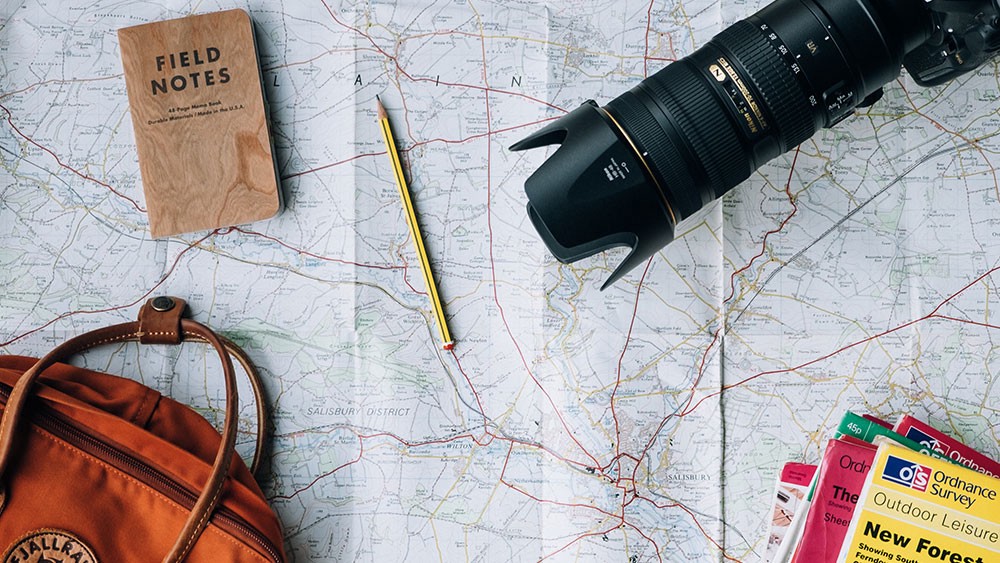It won?t be like it is in the movies, and you need to prepare yourself actively.
 Unsplash
Unsplash
Moving to a new city is probably one of the most glorified tropes of our generation. It?s encouraged, if not expected, for young people to head out into the world, to a new city and a new culture, to find themselves.
Simply put ? the world is our oyster. We have the freedom to move between countries, the ease, and the confidence to explore the unfamiliar and an unquenchable thirst for change.
Somehow along the way, moving to a new city has become the answer to all puzzles. Hate your job? Move! Unhappy with your personal life? Move! Want to change something up? Move! Feeling lost? Move! Bored? Move! Depressed? Move! Indecisive? Move!
 Image from OFX.com
Image from OFX.com
What?s even more evident, is that the rise of TEFL teaching jobs has further encouraged broke, lost and bemused people in their early stages of adulthood to uproot and follow the sometimes false promises of tropical oceans and a laidback lifestyle.
Travelling is no longer something of the elite or the alternative, but as routine as getting a job.
Every day, people are following this path of emigration, derived from our generations? elongated existential crisis that isn?t going to conclude any time soon.
We are perpetually falling for the often-unrealistic fantasy of oversized straw hats and vineyards, of wine on terraces and writing a novel in the sun.
We?ve seen the immigration interpretation play out in the films we watch and the books we read. The protagonist feels lost and uncertain, single and lonely, and so decides to pack up, quit their job, and head to the sandy beaches of Spain, Thailand, Bali, or the likes.
They adapt to their new culture, with some comedic and minor bumps along the road, fall in love and live happily ever after in their refreshed and improved life.
But what happens next? When they don?t climatize as everyone assumed, don?t have that much money because the countries minimum wage pays less than their ?adventurous? lifestyle allows and they actually miss their family and don?t have any friends apart from that hunk they live with whose language barrier is rather frustrating?
 Image from Investment U
Image from Investment U
We are perpetually falling for the often-unrealistic fantasy of oversized straw hats and vineyards of wine on terraces and writing a novel in the sun. Sure, if you?ve made your millions or are ready for retirement, have at it. But perhaps the iconic and so-called bravery of a drastic culture change in your twenties isn?t always the answer.
Tired and unfulfilled by a dreary life in Edinburgh, Madrid seemed like the perfect option for me. Fewer working hours, less laborious work, and plenty of leisure time.
But the primary element this ample free time has offered me is time to think about what truly makes an ideal, comfortable life, and what?s necessary for a positive living environment. Of course, the grass is always greener, but perhaps, this awakening has offered me an insight into what the grass needs to grow.
It?s tough to hear, but all your bad habits will translate to your new culture so don?t expect to go ?Eat, Pray, Love? overnight.
Sure, my Vitamin D intake is higher, I have more time to read and write, and I live a healthier, more active lifestyle, but isn?t there more needed to achieve self-actualization?
DON?T:
1. Immediately get a studio/one-bedroom apartment.
I love my privacy and my own space, and having apartment-shared for years, I was ready to have my own place. That may be fine when you?re in familiar surroundings, but having some forced friends and human company in a new city is necessary. Even if they aren?t your cup of tea, they will offer you some insight or a helping hand to settle into your new home.
Try to find some like-minded people through online advertisements and Facebook groups, and trust your gut. Ask yourself if you think you could see yourself genuinely living in that apartment for longer than three months and if you get a bad feeling be patient and wait until you?re more comfortable.
2. Get a remote job with no colleagues
Digital nomads are on the rise, and if your teaching English you will often do so via private classes. It may seem easy and convenient to work alone, especially if you have a history of awful colleagues, but that lack of human interaction and a similar lack of forced friendship will begin to take its toll. Most people would agree that some of their primary or best friends were made through work.
3. Plan to meet new people in bars
People do not meet the old-fashioned way anymore. I?m not just referencing the boost of tinder-use for romantic relationships here; I?m talking friendships. Before, perhaps it was common to go out for a few beers and come home with ten new besties, but now its almost impossible. The rise of social media has dampened our social skills, so people rarely approach strangers anymore, and if they do, it is often considered ? quite honestly ? strange.
Now, people head out to bars with their friends and rarely mingle outside of that group for the night. If you feel content to approach a group of strangers, then by all means, but don?t expect it to be smooth sailing, especially if there is a slight language barrier.
 GoAbroad.com
GoAbroad.com
4. Expect to learn the language gradually
Minor interactions in bars and shops, and maintaining your Duolingo streak will rarely award more than the basics. The ?immersion? process only works if you are regularly speaking to people or working with natives, and they have the patience to help you pick it up, which is rare. If you?ve moved to a foreign place and want to learn the native tongue, then immediately look into some classes, meetings, or language exchanges, and try to study in your own time. It probably won?t come as naturally as you may hope.
5. Over-fantasise.
I?m sure everyone who has moved to a new country is guilty of this. ?I?ll drink wine every day and survive on olives and cheese? or ?I?ll increase my wealth of knowledge and practice yoga every day? we imagine. Set yourself realistic goals and always remember that a new city does not necessarily mean a new you. It?s tough to hear, but all your bad habits will translate to your new culture, so don?t expect to go all Eat, Pray, Love overnight.
You will still want a takeaway, you will always want to binge Netflix, and you will still feel lazy even when the sun is shining. Perhaps a new environment will offer a fresh perspective, a healed heart, or a new routine, but you are still the same person, and working on your sense of self is vital.
6. Over self-care.
Of course, you are feeling overwhelmed and drained from the culture shock. Of course, you need to focus on yourself and what?s right to you. But all the self-care and me-time in the world won?t help you get over your anxieties or worries about getting settled, and couldn?t you have meditated with a face mask where you were before?
You-time is extremely important, but you must push yourself out of your comfort zone and into experiences that will seem less appealing than sitting in your bed eating chocolate. You need to make plans and arrangements and stick to them, and experience and explore your new city.
 Image from philadelphia-printworks.myshopify.com
Image from philadelphia-printworks.myshopify.com
DO:
1. Become an avid Facebook user
The minute you move to a new city you should join all the Facebook communities you can, whether it?s about apartments, local information, meetups or a niche interest. Facebook is thriving when it comes to event planning, and even though some believe it?s dying out, it is still one of the most widely used platforms among our generation, especially by those trying to meet new people.
This is one of the most vital sources to help you meet like-minded and interesting people. It also offers a wealth of knowledge about your current city, whether it?s about safety, jobs or visa struggles. Don?t be shy, get involved and get talking.
2. Get out of your comfort zone
Go to that talk, attend that event, join that team, ask that person to meet for coffee. The thing is, you have to be a little needy. Some people won?t like it, and some people will smell it from a mile off. But if it bothers them that you are trying to actively make friends, then they are probably not worth your time anyway. It?s always best to be straight up and honest in order to attract your type of people. Making friends will dictate your experience in this new city and could also contribute to self-discovery and new passions.
 Image from Women Ready
Image from Women Ready


